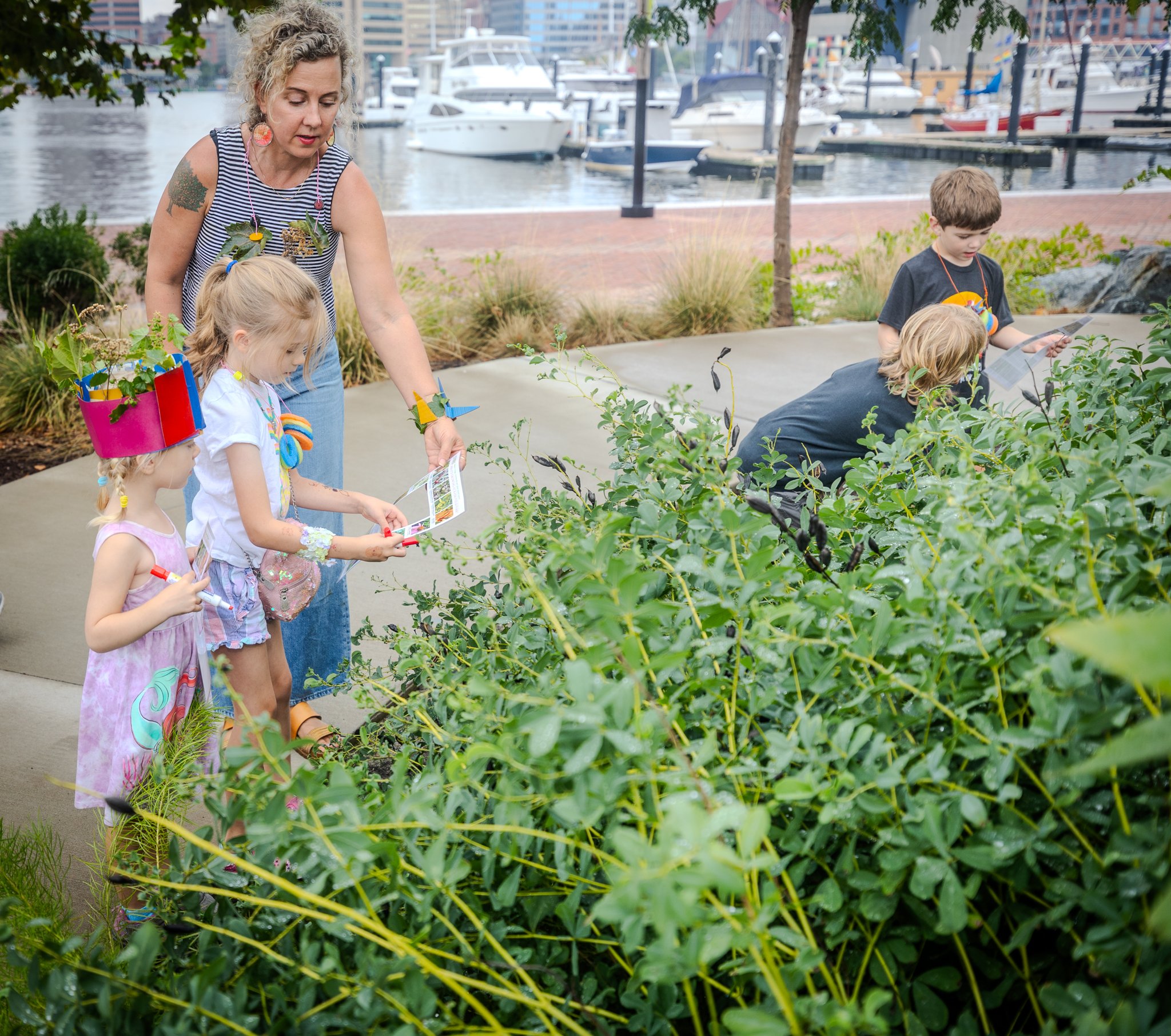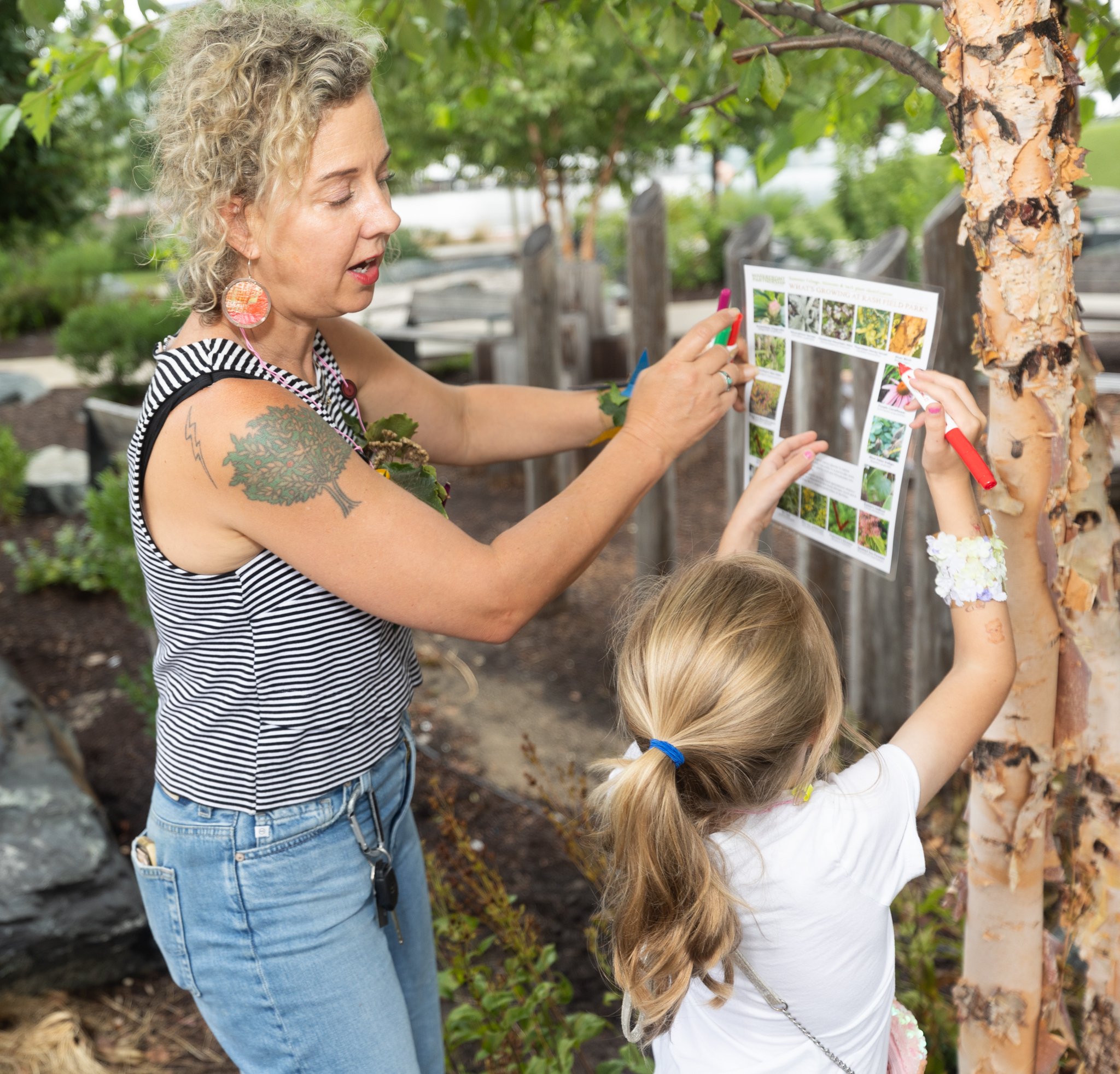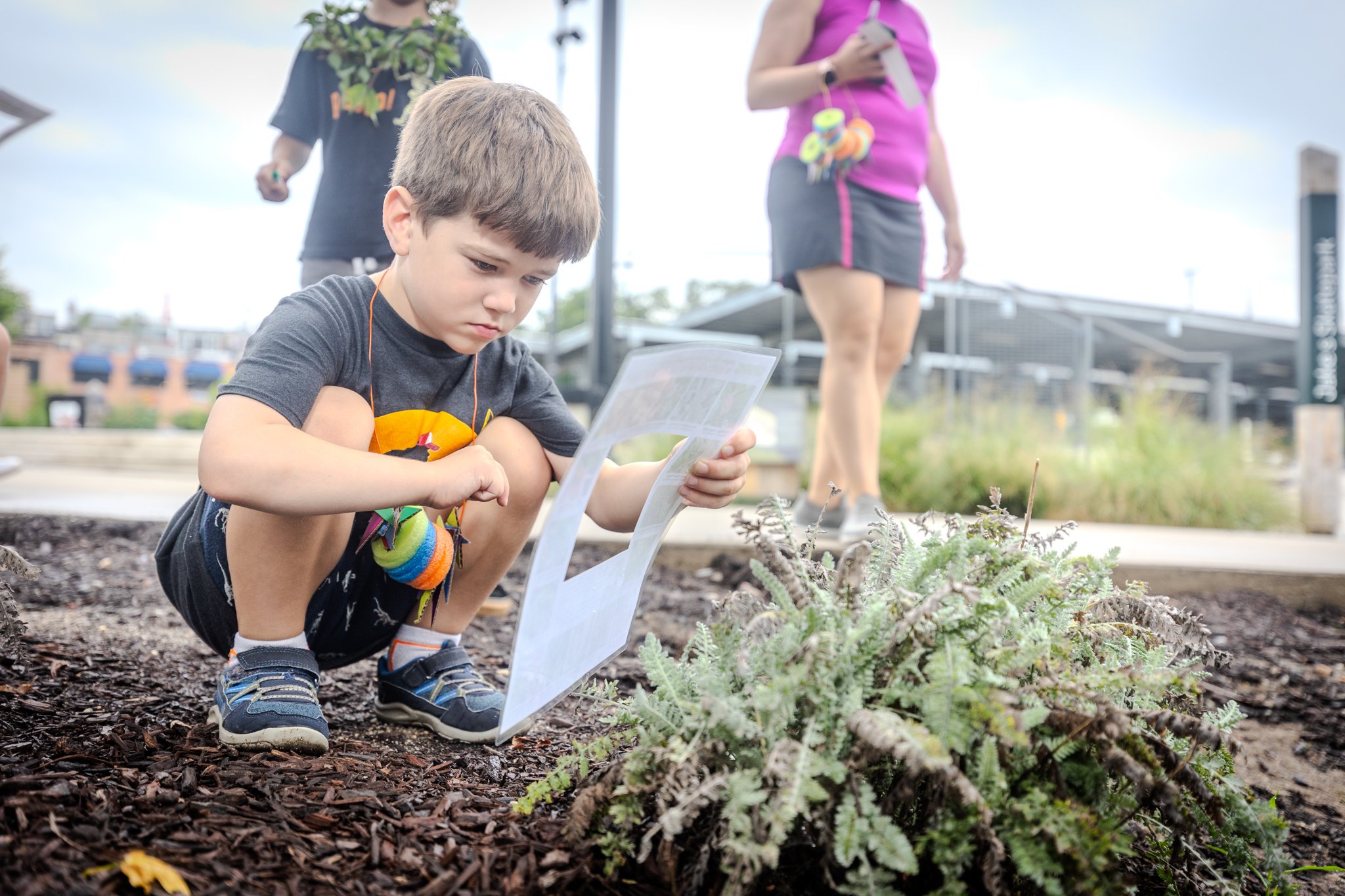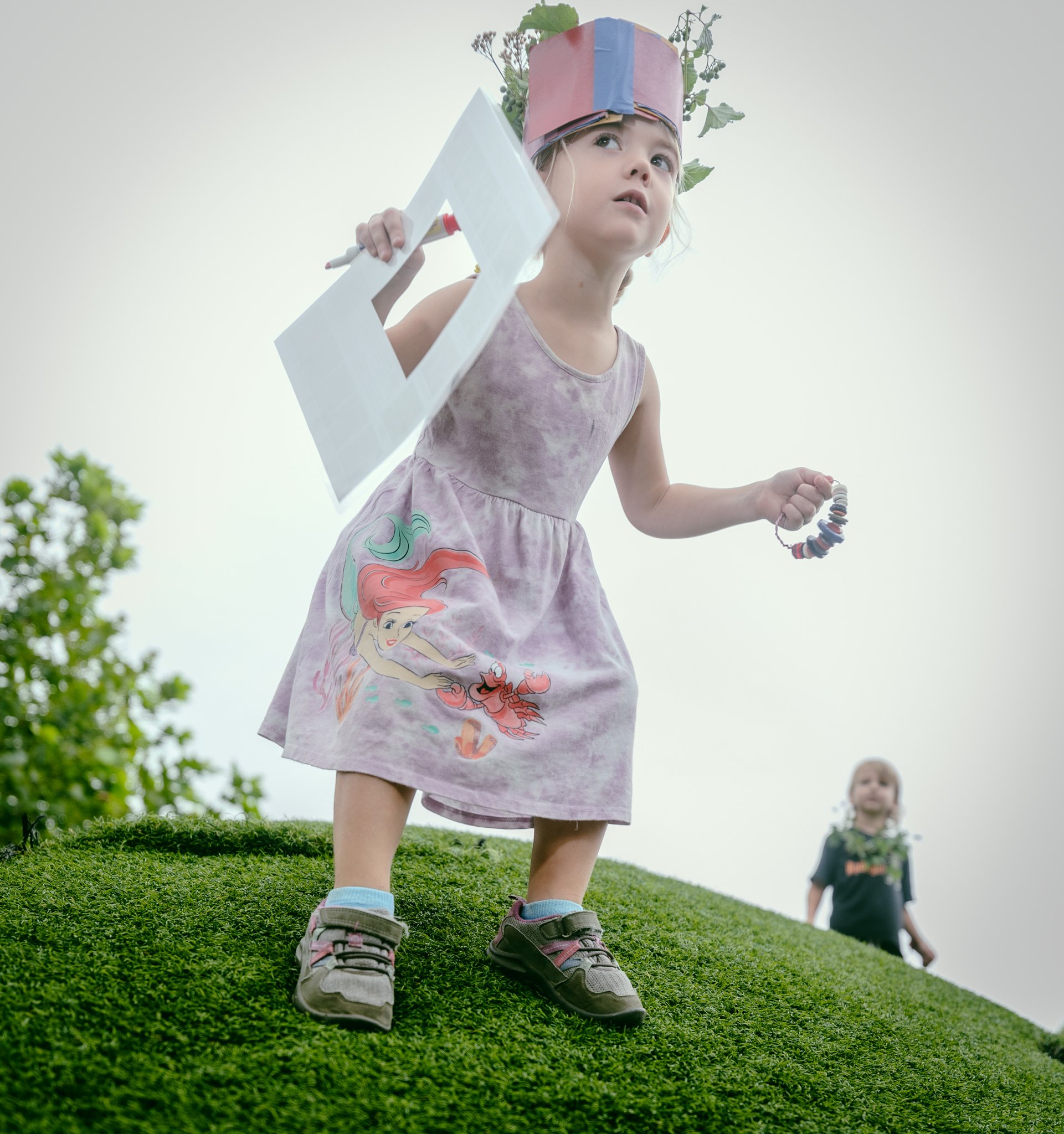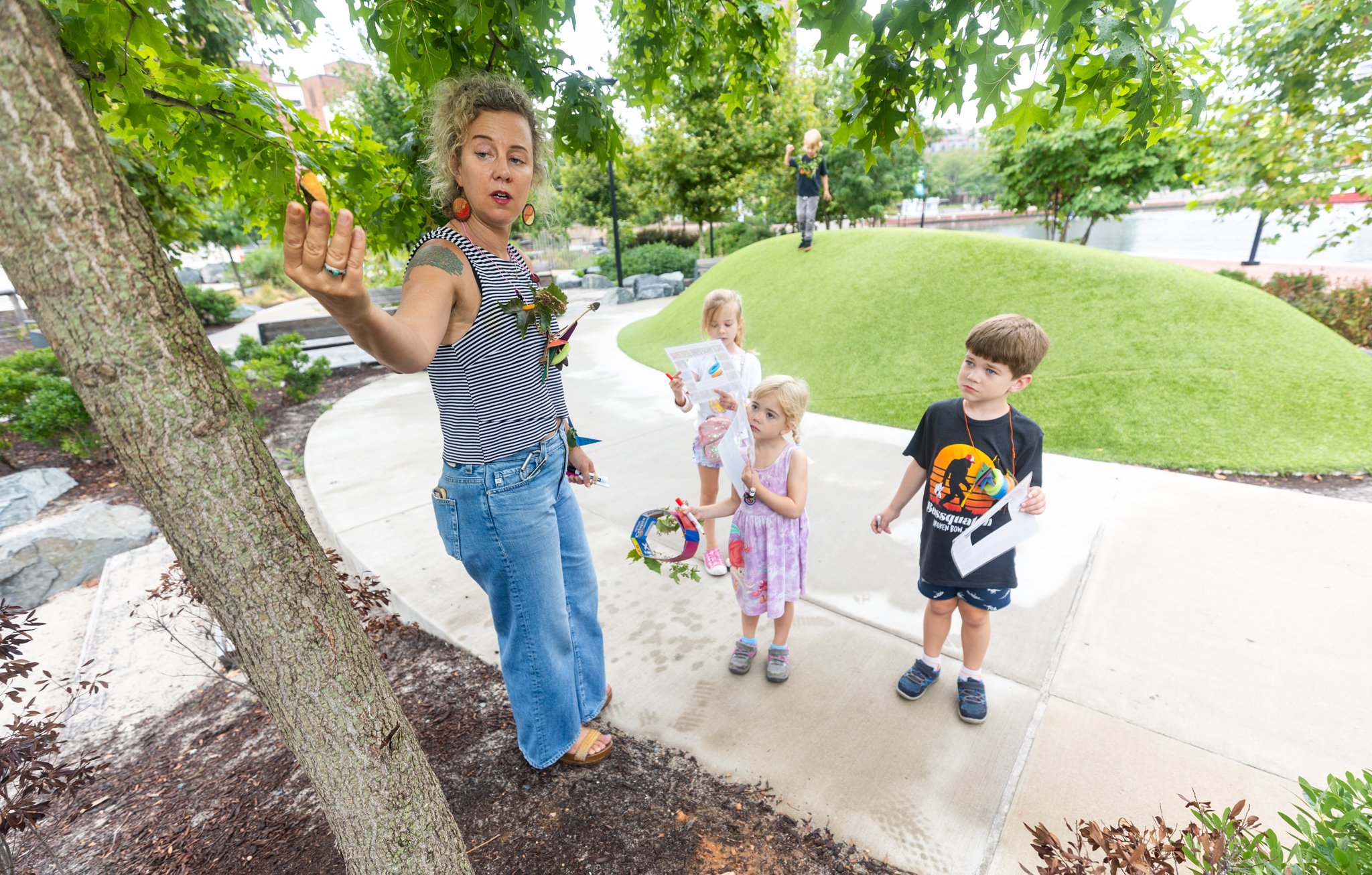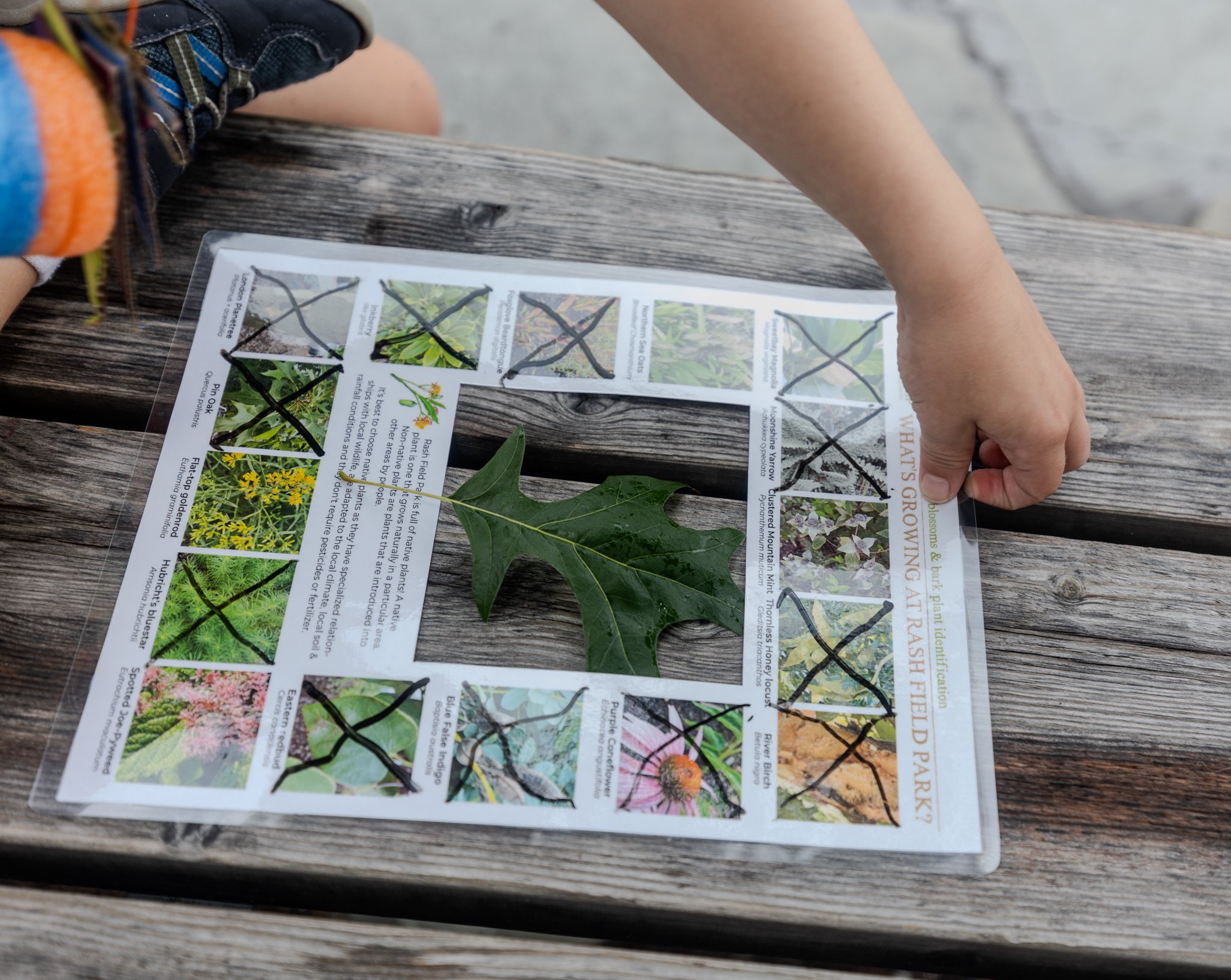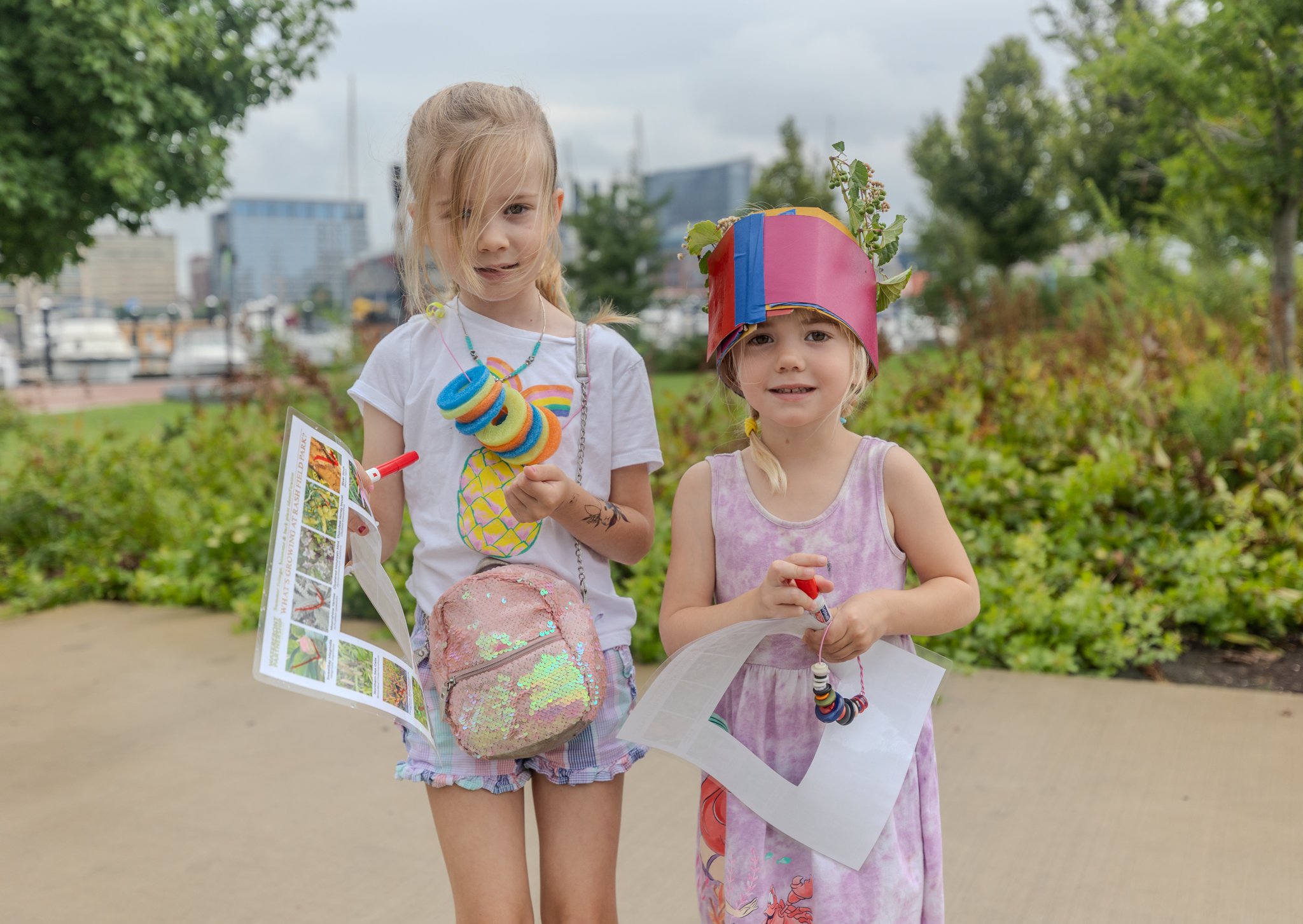Plants, plastic, trash-to-treasure & a story by Eco-Artist and Author, Bridget Parlato
Learning AND upcycling!
Dozens of attendees gathered at Rash Field Park to make wearable art from found objects and plastics and explore the book – Plastic Land. Kids and parents alike tuned in tightly to the rhyming trash tale about the problems with plastics - and how to solve them.
Little “readers” enjoying Plastic Land!
Trash-to-treasure
With tape, twigs, wires, vines and a big bag-o-buttons, we created crowns, bracelets, rings, necklaces, dinosaurs and magic wands.
Little learners (and some not so little!) made it through late summer showers to be greeted by a table full of fun. Brightly painted cardboard pieces, slices of pool noodle, ivy leaves, string and painted cereal box- ready for crafting! The materials were all upcycled or gathered from the environment as a way to bridge the gap between man-made and nature.
Making treasure from trash was the perfect activity to pair with our Plastic Land reading! Even kids have busy lives these days and can get pretty disconnected from the natural world around them. Getting more in touch with how our man-made items can be repurposed can help them—well, maybe all of us, to rethink our relationship with our stuff.
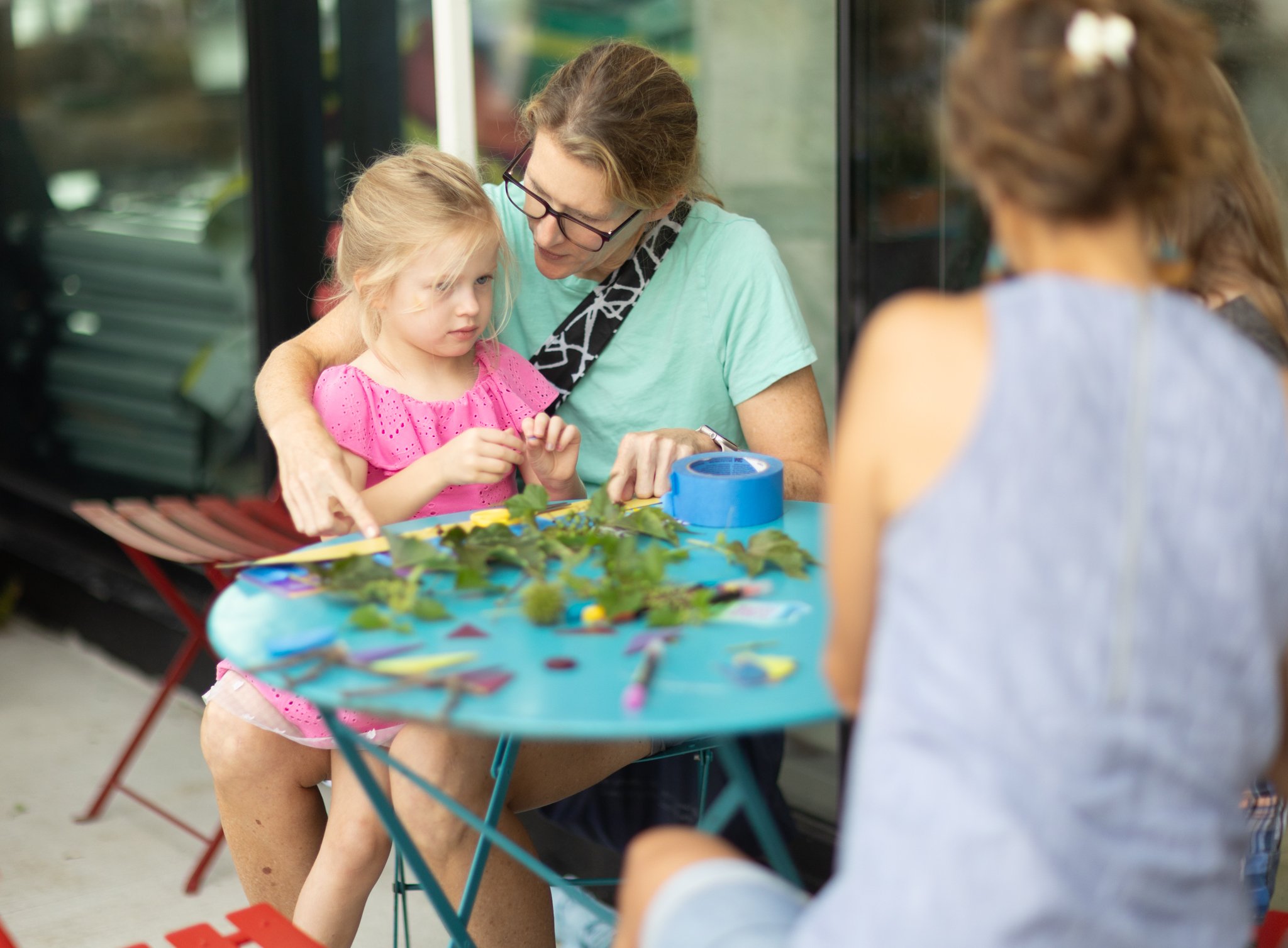
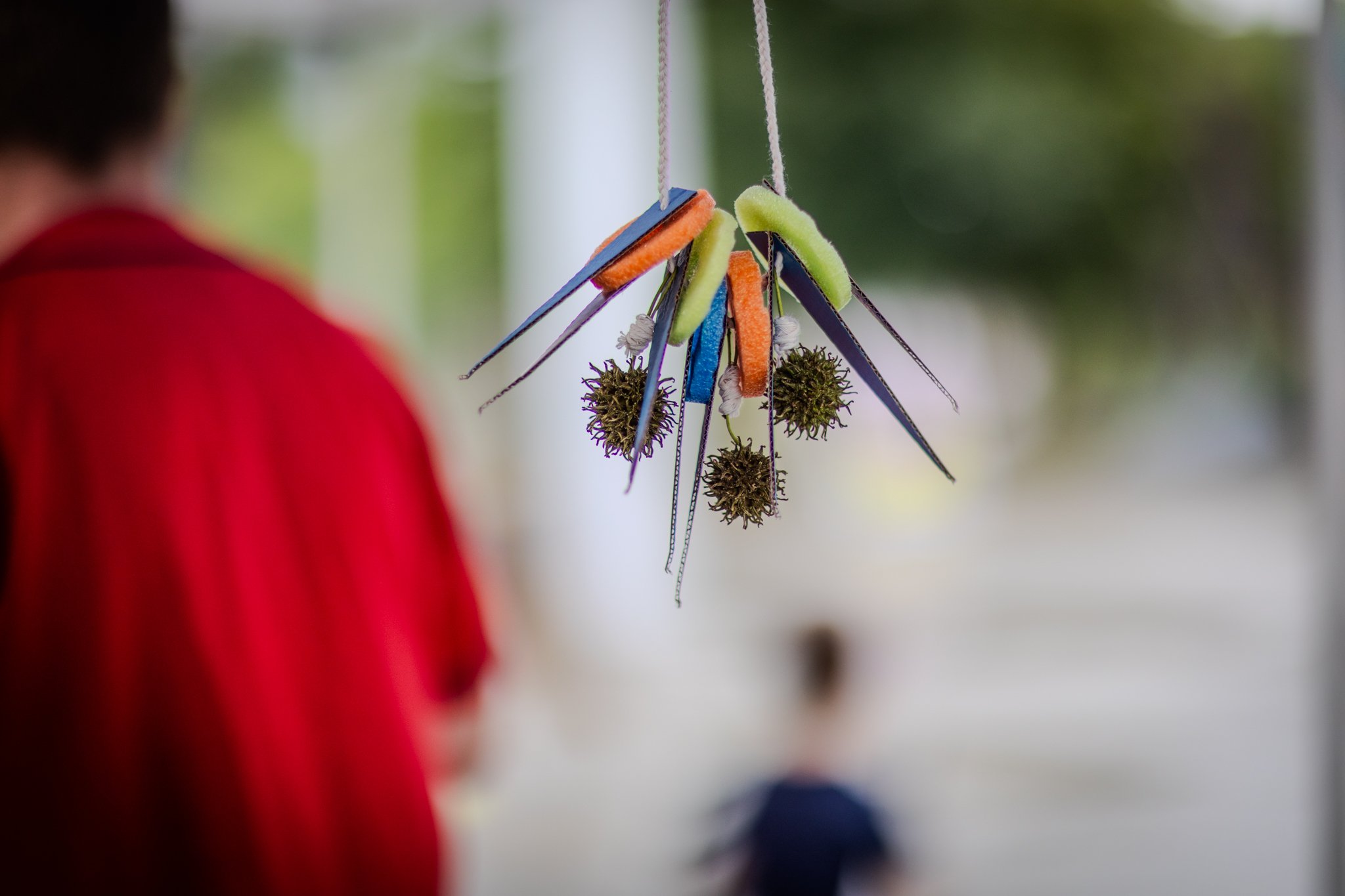
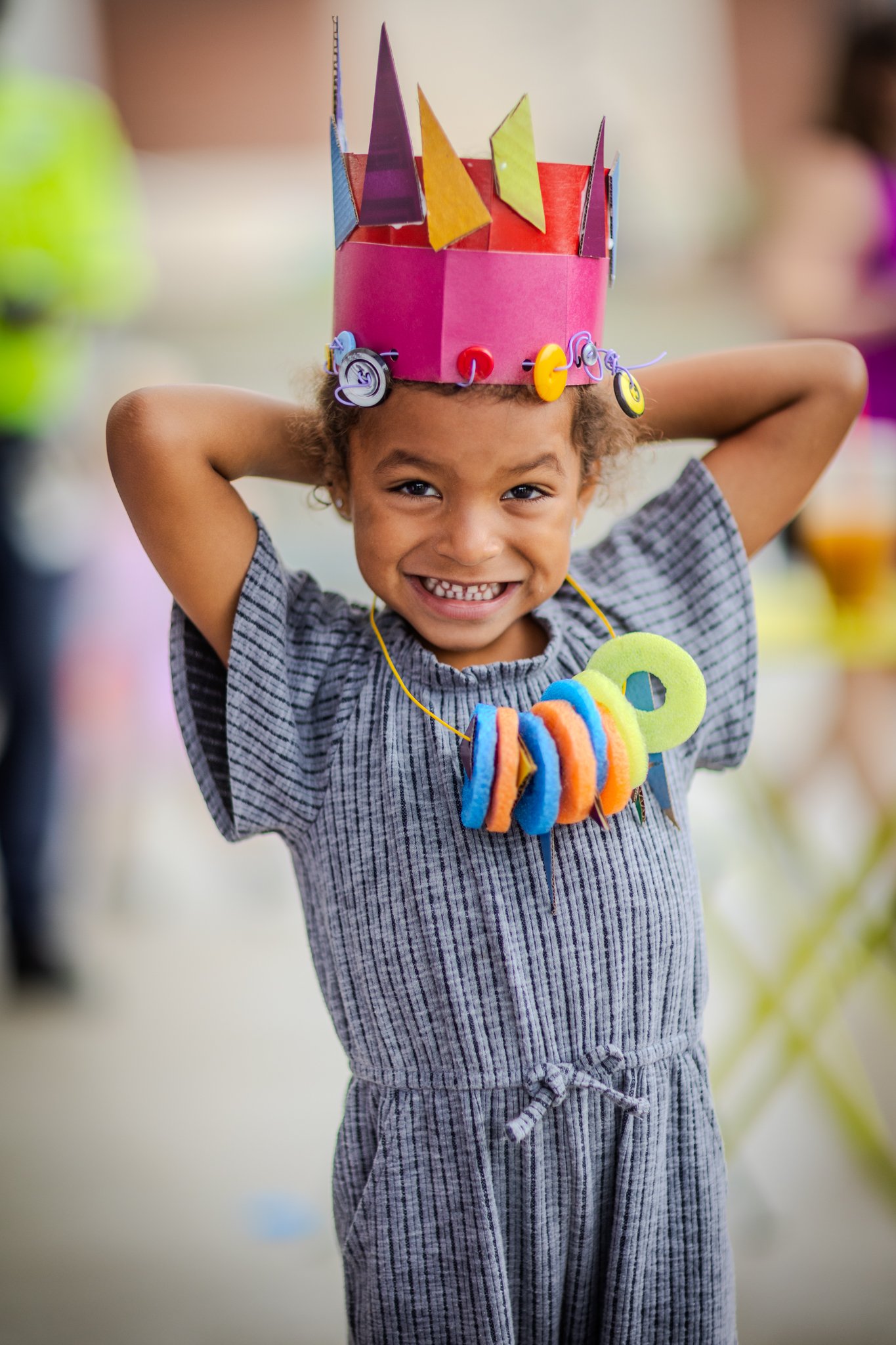
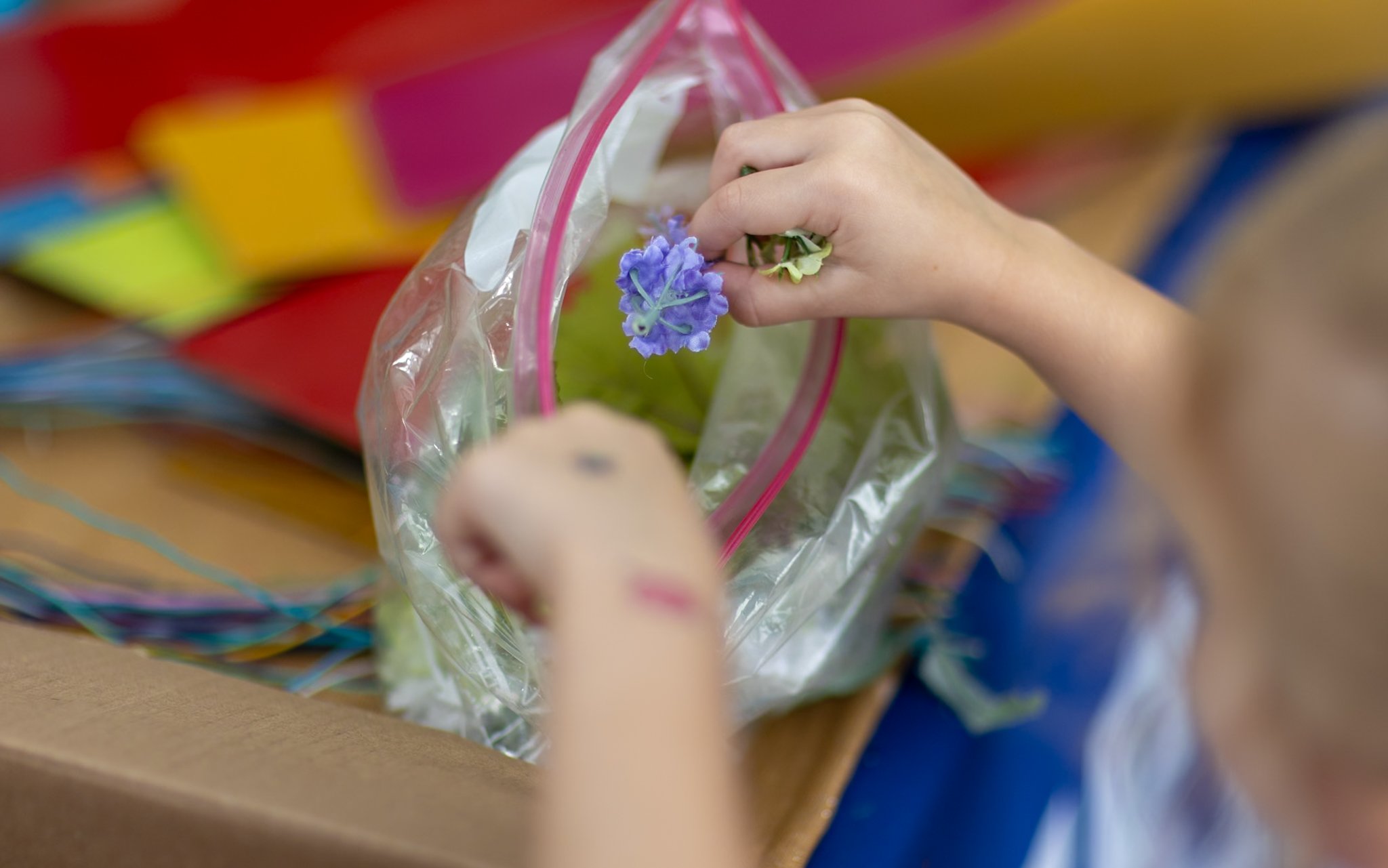
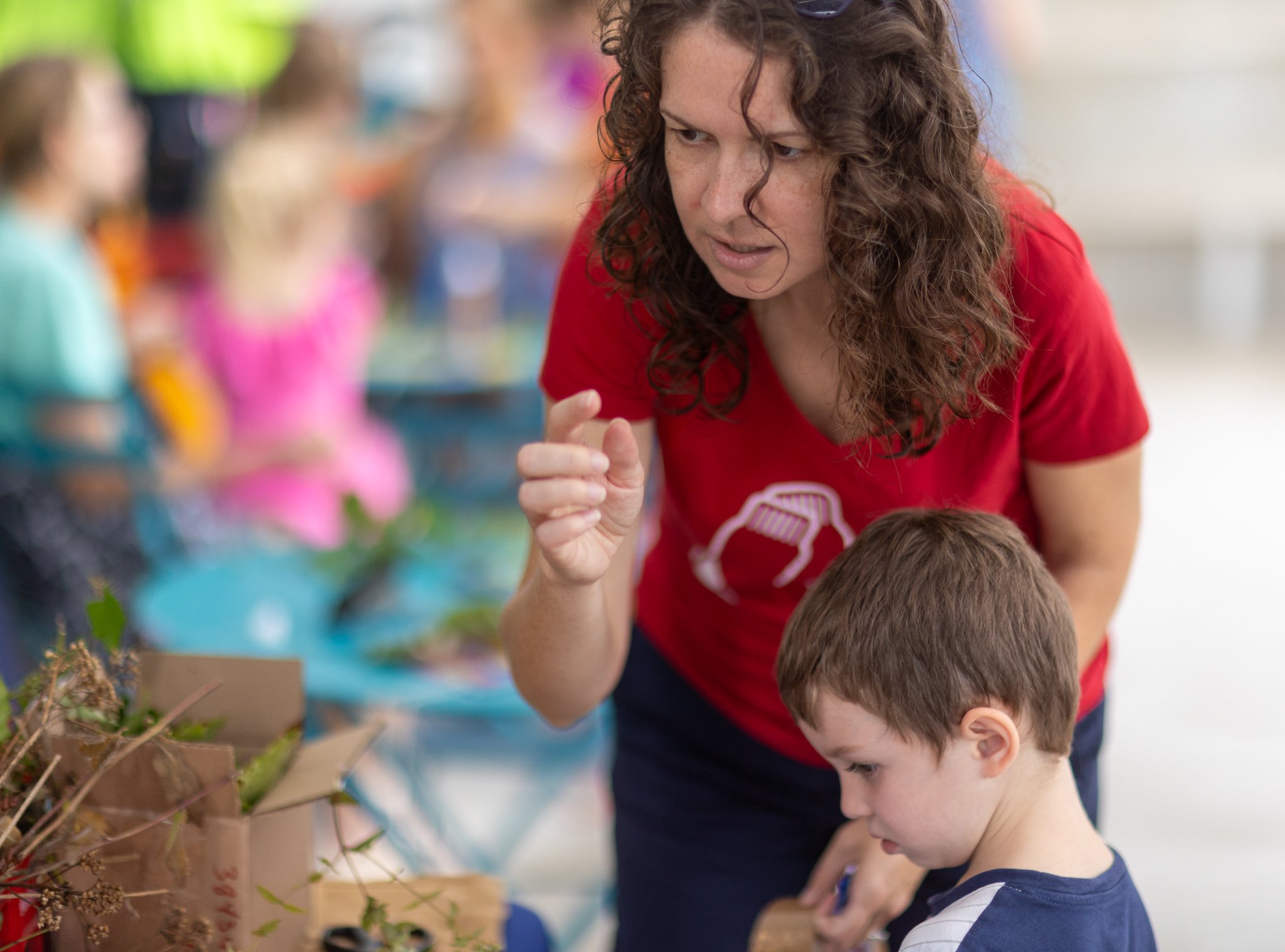
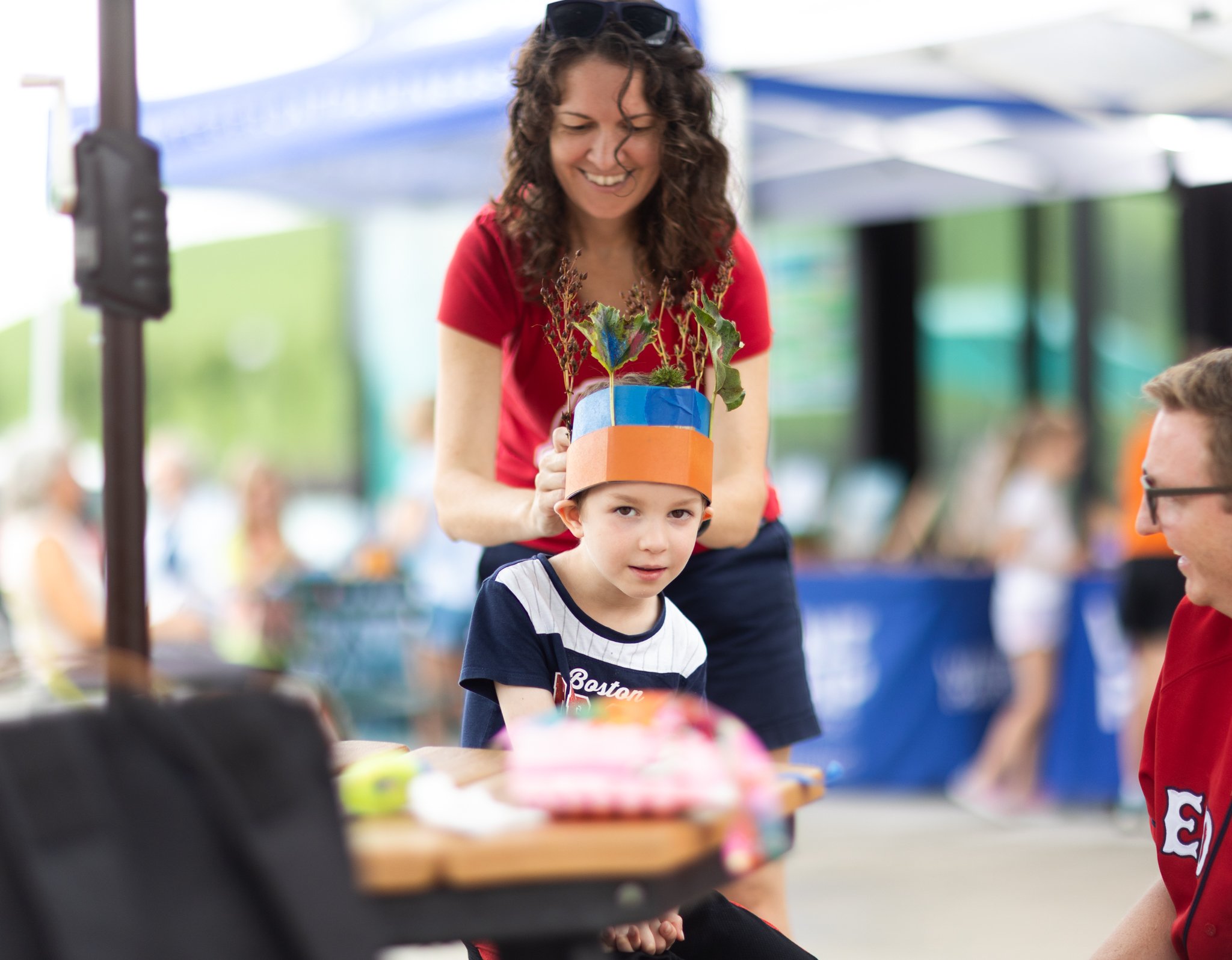
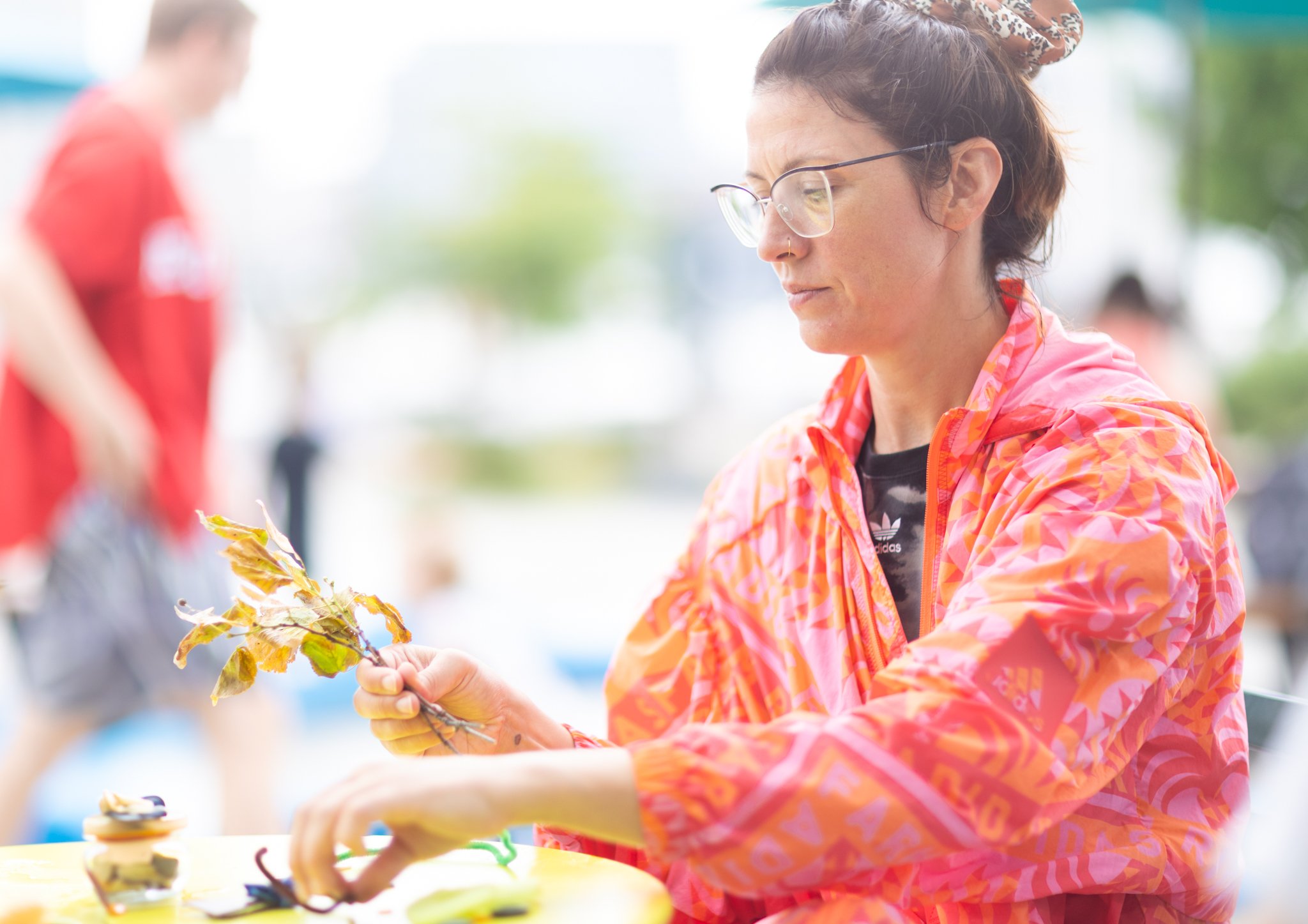
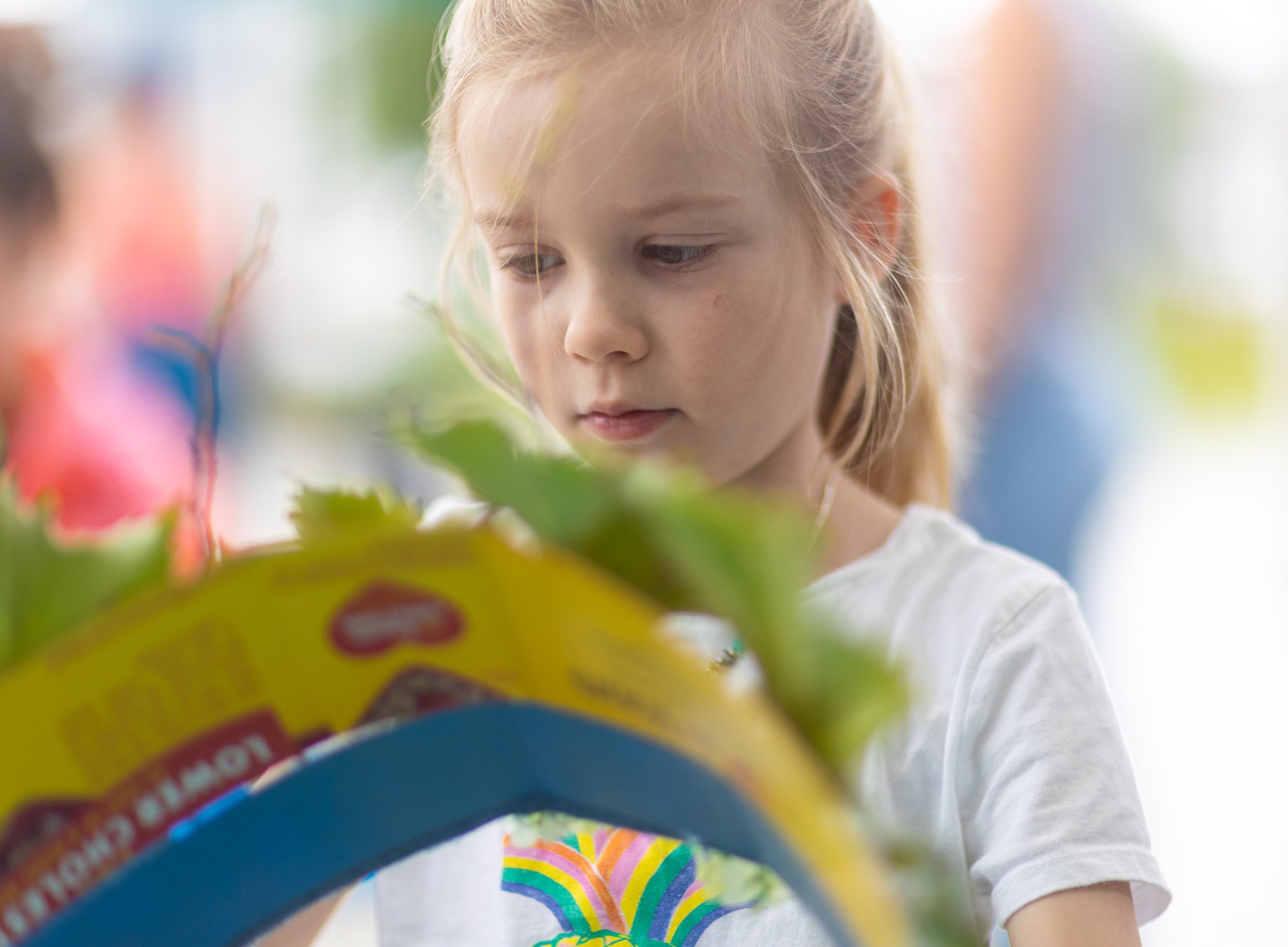
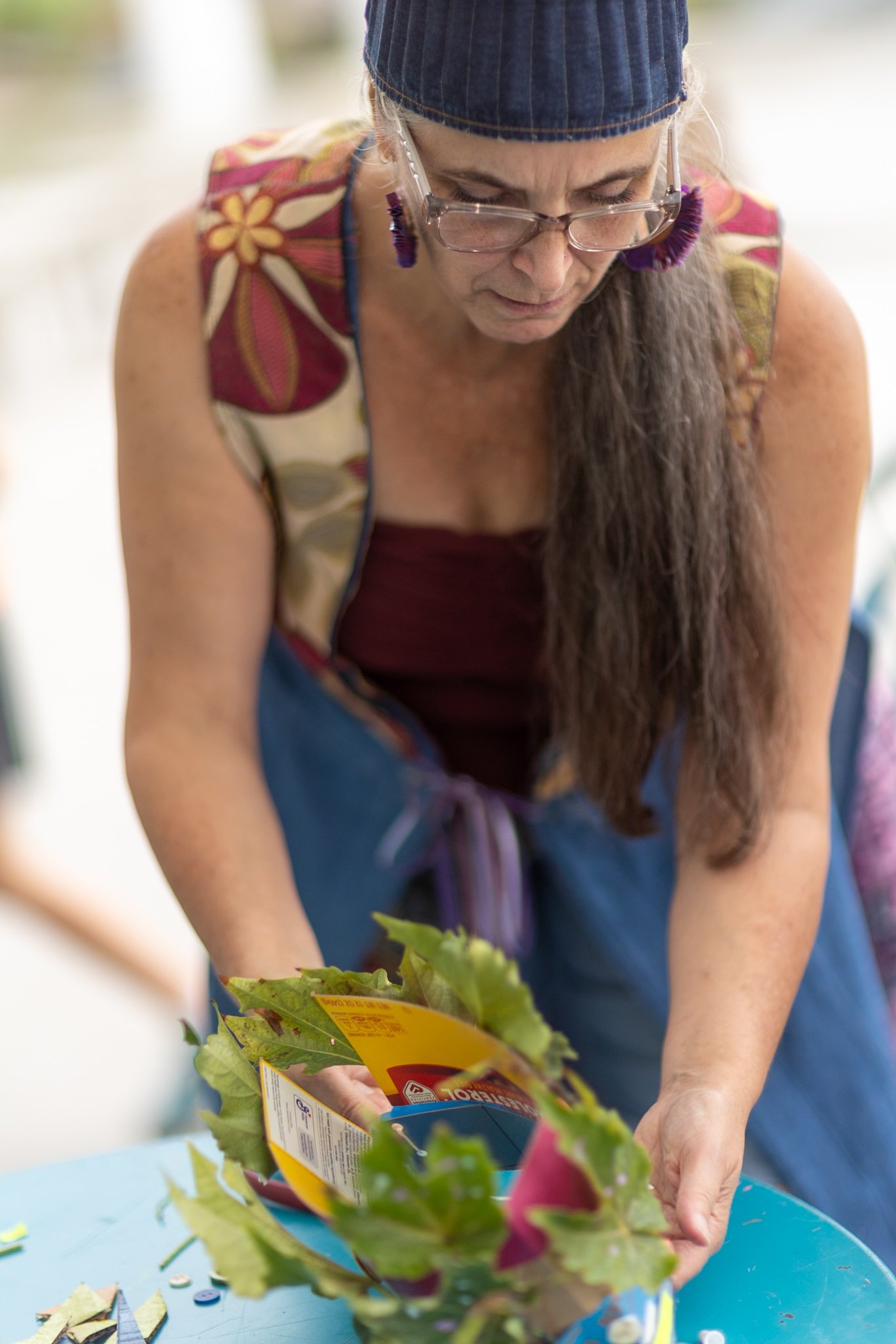
Make it stand out
Plant Identification
Children played “plant bingo”, examining leaves, bark, berries and flowers through view finders that identify the varieties of natives plants. With more than a thousand native perennials and trees in Rash Field Park, there’s plenty to discover about the plant species that will thrive in your yard, pots and planters. Native plants provide habitat and food for birds, bugs and amphibians, filter polluted storm water and are perfectly suited for Maryland’s climate!
Sweetbay Magnolia •
Moonshine Yarrow •
Clustered Mountain Mint •
Thornless Honey Locust •
River Birch •
Northern Sea Oats •
Purple Coneflower •
Foxglove Beardtongue •
Inkberry •
Eastern Redbud •
Blue False Indigo •
London Planetree •
Pin Oak •
Sweetbay Magnolia • Moonshine Yarrow • Clustered Mountain Mint • Thornless Honey Locust • River Birch • Northern Sea Oats • Purple Coneflower • Foxglove Beardtongue • Inkberry • Eastern Redbud • Blue False Indigo • London Planetree • Pin Oak •
